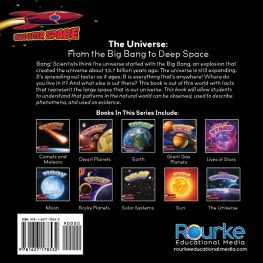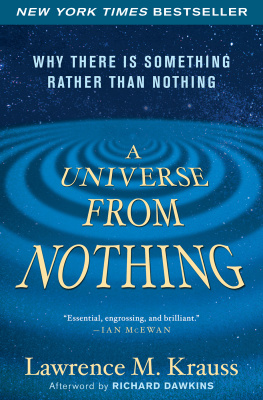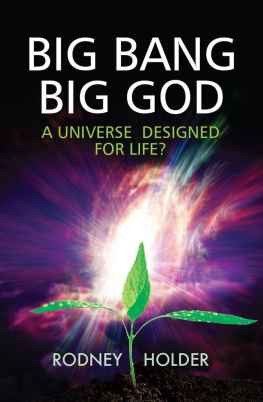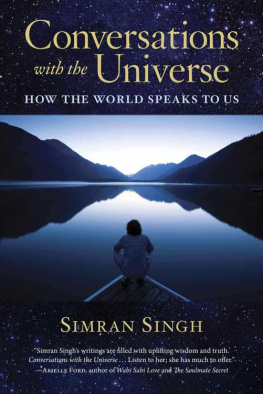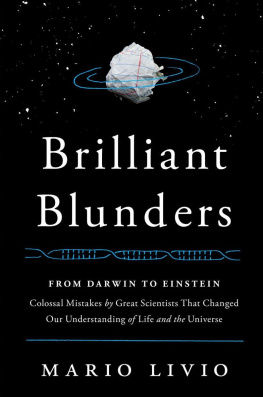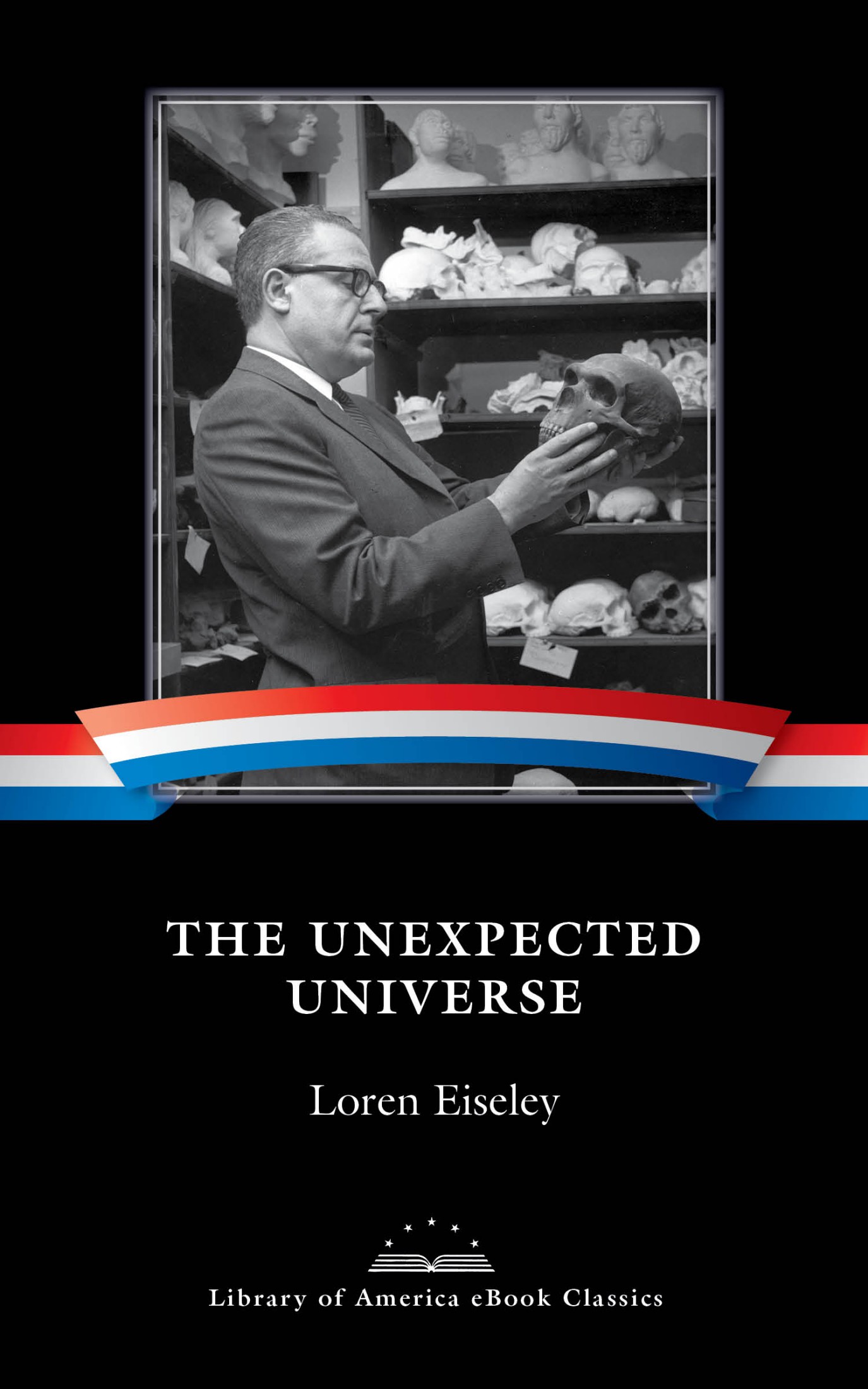L OREN E ISELEY
The Unexpected Universe
William Cronon, editor

LIBRARY OF AMERICA E-BOOK CLASSICS
Notes and chronology copyright 2016 by
Literary Classics of the United States, Inc., New York, N.Y.
All rights reserved.
No part of this book may be reproduced in any manner whatsoever
without the permission of the publisher, except in the case of
brief quotations embodied in critical articles and reviews.
The Unexpected Universe copyright 1964, 1966, 1968, 1969 by Loren Eiseley, renewed 1994 by John A. Eichman, 3rd. Reprinted by arrangement with the Trustees of the University of Pennsylvania.
Distributed to the trade in the United States
by Penguin Random House Inc.
and in Canada by Penguin Random House Canada Ltd.
LIBRARY OF AMERICA, a nonprofit publisher, is dedicated to publishing, and keeping in print, authoritative editions of Americas best and most significant writing. Each year the Library adds new volumes to its collection of essential works by Americas foremost novelists, poets, essayists, journalists, and statesmen.
Visit our website at www.loa.org to find out more about Library of America and to explore our popular Story of the Week and Moviegoer features.
e ISBN 9781598535457
TO WOLF,
who sleeps forever
with an ice age bone
across his heart,
the last gift
of one
who loved him
I wish to thank the sponsors of the William Haas Lectures of Stanford University, where three of these explorations of the unexpected universe were given, my colleagues in the Institute for Research in the Humanities at the University of Wisconsin, where I was a 1967 guest, and my associates at the Menninger Foundation, where I was a similar visitor. To the John Simon Guggenheim Memorial Foundation and its former director Henry Allen Moe for his patience and his faith I am most grateful. I would like also to express appreciation to the editors of Time-Life Books for permitting the reprinting, with modifications, of a passage from an older article of mine, once confined to a specialized purpose, and to The American Scholar and Life, in which some of this material also previously appeared.
LOREN EISELEY
Wynnewood, Pa.
March 3, 1969
is not only queerer than we suppose, but queerer than we can suppose.
J. B. S. HALDANE
expect it, you will not find the unexpected, for it is hard to find and difficult.
HERACLITUS
ONE
are mad, they know not whence they come, nor whither they would go: and those men are maddest of all that go to sea.
ROBERT BURTON
E VERY MAN CONTAINS within himself a ghost continenta place circled as warily as Antarctica was circled two hundred years ago by Captain James Cook. If, in addition, the man is a scientist, he will see strange shapes amidst his interior ice floes and be fearful of exposing to the ridicule of his fellows what he has seen. To begin such a personal record it may be well to start with the odyssean voyages of legend and science. These may defend with something of their own magic the small story of an observer lost upon the fringes of large events. Let it be understood that I claim no discoveries. I claim only the events of a life in science as they were transformed inwardly into something that was whispered to Odysseus long ago.
Like Odysseus, man seeks his spiritual home and is denied it; along his path the shape-shifting immortal monsters of his earlier wanderings assume more sophisticated guises, but they survive because man himself remains and man has called them forth. The almost three-thousand - year-old epic of the Odyssey takes on a particular pertinence today. It possesses a perennial literary freshness that causes it to be translated anew in every generation. It involves an extended journey amid magical obstacles and Cyclopean assailants. Moreover, it can be read as containing the ingredients of both an inward journey of reflection and an outwardly active adventure. Both these journeys threaten to culminate in our time. Mans urge toward space has impelled him to circle the planet, and in the week of December 25, 1968, precisely two hundred years after the navigator James Cooks first great voyage into the Pacific, three American astronauts had returned from the moon. The event lies more than two million years after the first man-ape picked up and used a stone.
Nevertheless, throughout this entire pilgrimage, as reflected in his religious and philosophical thinking, mans technological triumphs have frequently been at odds with his hunger for psychological composure and peace. Thus the epic journey of modern science is a story at once of tremendous achievement, loneliness, and terror. Odysseus passage through the haunted waters of the eastern Mediterranean symbolizes, at the start of the Western intellectual tradition, the sufferings that the universe and his own nature impose upon homeward-yearning man.
In the restless atmosphere of today all the psychological elements of the Odyssey are present to excess: the driving will toward achievement, the technological cleverness crudely manifest in the blinding of Cyclops, the fierce rejection of the sleepy Lotus Isles, the violence between man and man. Yet, significantly, the ancient hero cries out in desperation, There is nothing worse for men than wandering.
The words could just as well express the revulsion of a modern thinker over the sight of a nation harried by irrational activists whose rejection of history constitutes an equal, if unrecognized, rejection of any humane or recognizable future. We are a society bemused in its purposes and yet secretly homesick for a lost world of inward tranquillity. The thirst for illimitable knowledge now conflicts directly with the search for a serenity obtainable nowhere upon earth. Knowledge, or at least what the twentieth century acclaims as knowledge, has not led to happiness.
Ours is certainly the most time-conscious generation that has ever lived. Our cameras, our television, our archaeological probings, our C14 datings, pollen counts, under-water researches, magnetometer readings have resurrected lost cities, placing them accurately in stratigraphic succession. Each Christmas season the art of ice age Lascaux is placed beside that of Rembrandt on our coffee tables. Views of Pompeii share honors with Chichn Itz upon the television screen in the living room. We unearth obscure ancestral primates and, in the motion picture 2001, watch a struck fragment of bone fly into the air and become a spaceship drifting among the stars, thus telescoping in an instant the whole technological history of man. We expect the average onlooker to comprehend the symbolism; such a civilization, one must assume, should show a deep veneration for the past.
Strangely, the results are quite otherwise. We appear to be living, instead, amidst a meaningless mosaic of fragments. From ape skull to Mayan temple we contemplate the miscellaneous debris of time like sightseers to whom these mighty fragments, fallen gateways, and sunken galleys convey no present instruction.
In our streets and on our campuses there riots an extremist minority dedicated to the now, to the moment, however absurd, degrading, or irrelevant the moment may be. Such an activism deliberately rejects the past and is determined to start life anewindeed, to reject the very institutions that feed, clothe, and sustain our swarming millions.


